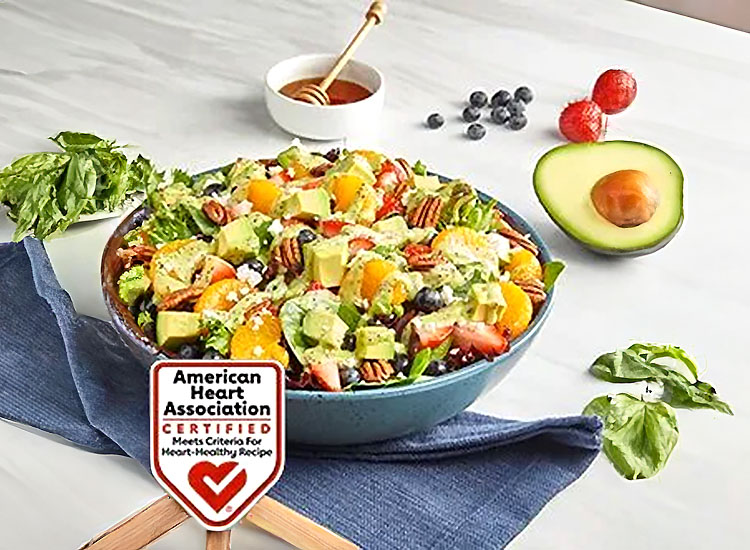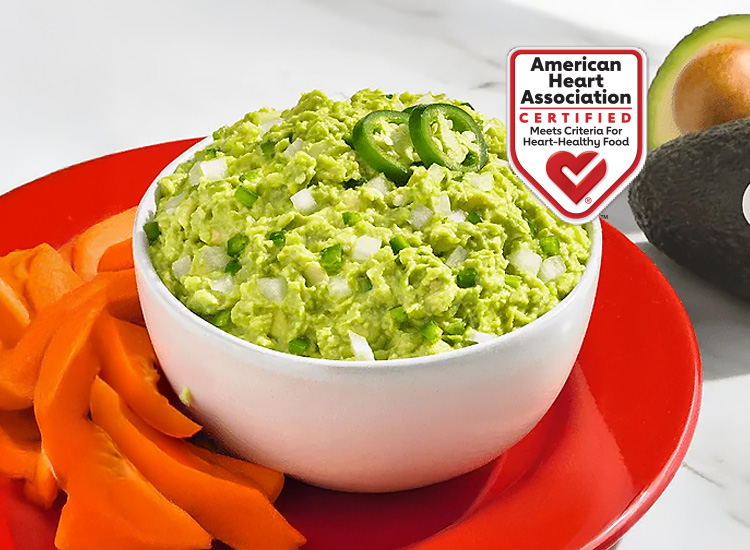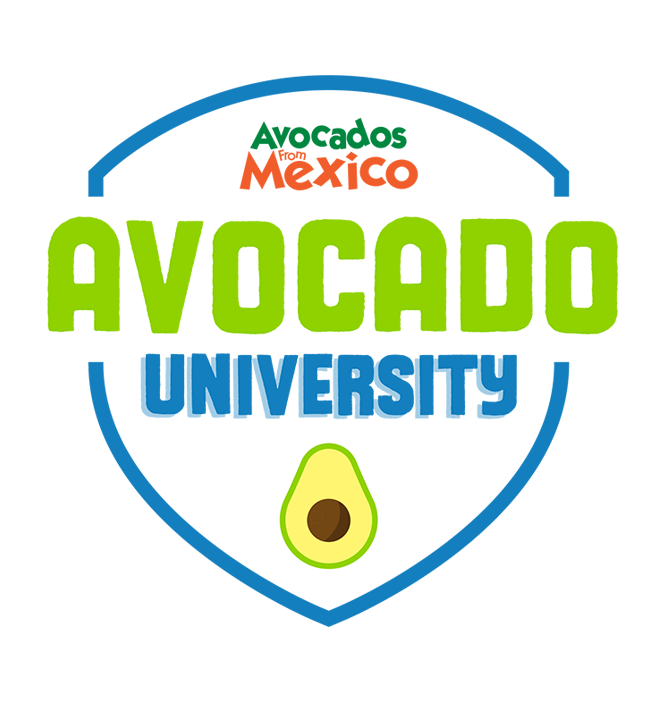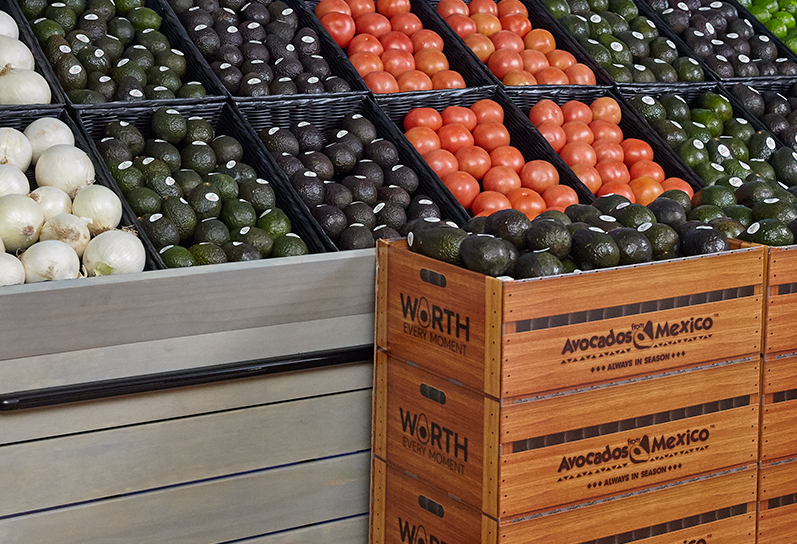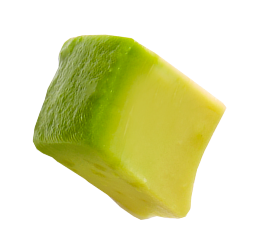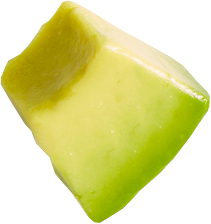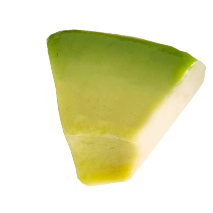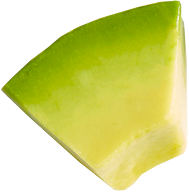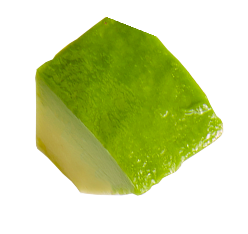Avocado: Good Fats
Avocados From Mexico are certified as heart-healthy by the American Heart Association
Certification does not apply to other scientific statements, information reached through links, or suggest uses/recipes unless expressly stated.
 HEART HEALTHY
HEART HEALTHY
Fresh avocados are a heart-healthy fruit. They provide naturally good fats and are cholesterol-, sugar-, and sodium-free.
 GOOD FATS
GOOD FATS
Avocados are essentially the only fruit with good fats, which offer benefits in the body without raising LDL (bad) cholesterol levels.
 AND MORE
AND MORE
Avocados count toward fruit and vegetable intake and provide several under-consumed nutrients, while the good fats can lower your risk of heart disease and stroke.
The good fats
One-third of a medium avocado, which is a 50g serving, contains 6g of naturally good fat. This 6g of good fat is made up of 5g of monounsaturated fat and 1g of polyunsaturated fat. Here’s what monounsaturated and polyunsaturated fat can do for you:
Monounsaturated and polyunsaturated fats or “good fats” can help improve intake of dietary fat without raising LDL or “bad” cholesterol levels. The American Heart Association and The Dietary Guideline for Americans recommend replacing bad fats with these good fats. They say that replacing your intake of saturated fat with unsaturated fat is associated with reduced risk of cardiovascular disease events.
Here are some other reasons why you need to eat fat as part of a healthy, balanced diet:
Dietary fat helps the body absorb vitamins A, D, E, and K. These vitamins are fat soluble, which
means they can only be absorbed by the body with the help of fats.
Per one-third of a medium avocado (50grams), avocados contribute 6 grams of unsaturated fats, which are known to be essential for normal growth and development of the central nervous system and brain.
OF A BALANCED DIET
When it comes to eating fat, remember that the body needs some fat to function but you should consume it in moderation. Aim to replace bad fats, like monounsaturated and polyunsaturated fat.
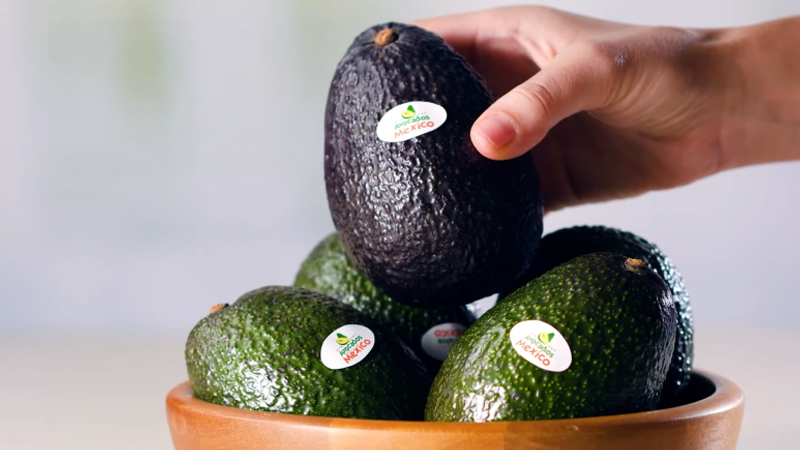
While many factors affect heart disease, eating fruits and vegetables such as avocados, as part of a diet low in saturated fat and cholesterol, may reduce the risk of heart disease. Since avocados are heart-healthy fruits and virtually the only fruit with monounsaturated fat and polyunsaturated fat, try to consume more as part of a healthy, balanced diet. The unsaturated fat in avocados can act as a nutrient booster as they help the body toabsorb fat-soluble nutrients like vitamins A, D, K and E. They have 80 calories per 50g serving of a medium avocado and the fiber they contain will even help keep hunger at bay. Avocados have 11 percent of your daily value per serving.
Try incorporating avocados in your diet by making a delicious guacamole, dicing them in a salad, sandwich, or blending them in a smoothie. Take a look at our recipes to find out more.
AVOCADOS AND GOOD FATS
Unsaturated fats are good fats, versus saturated fats and trans fats, which are also known as bad fats. Both monounsaturated fat and polyunsaturated fat, which are types of unsaturated fats, are considered good fats.

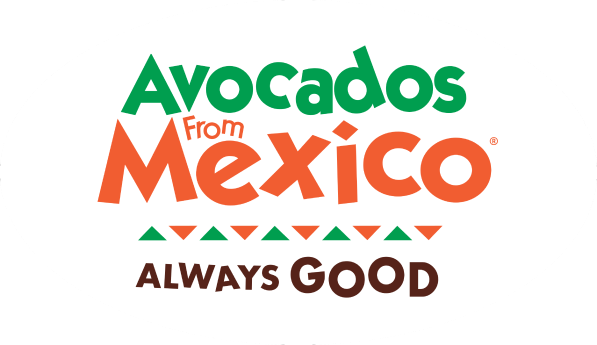
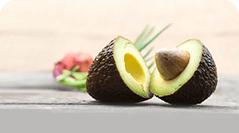
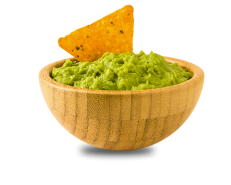 Guacamole
Guacamole
 Burgers & Sandwiches
Burgers & Sandwiches  Tacos & Burritos
Tacos & Burritos 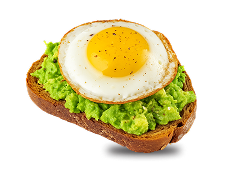 Avocado Toast
Avocado Toast 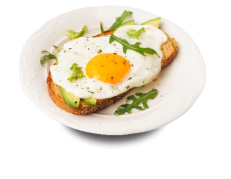 Breakfast
Breakfast
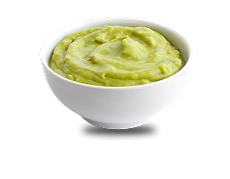 Sauces & Spreads
Sauces & Spreads 
